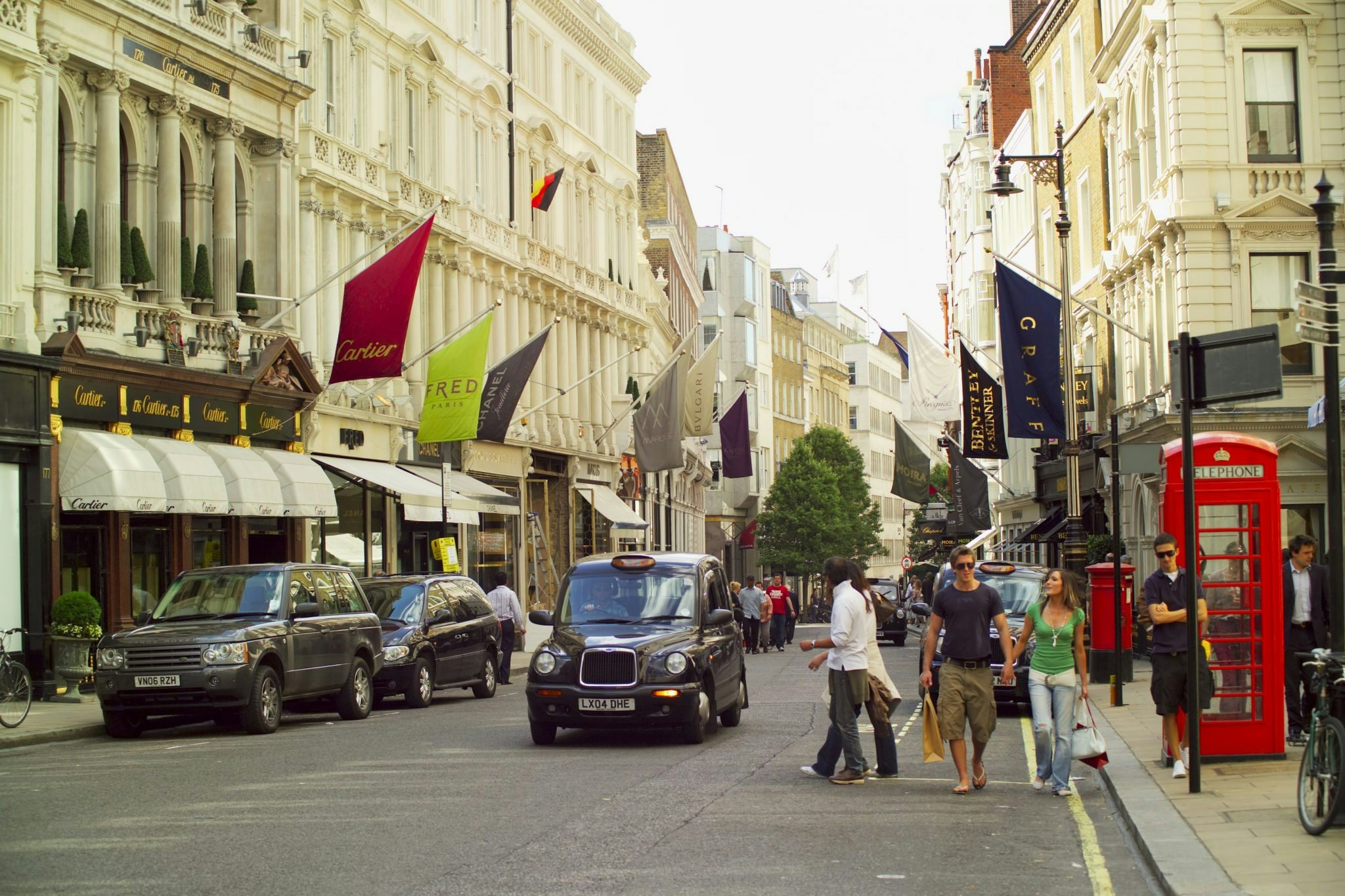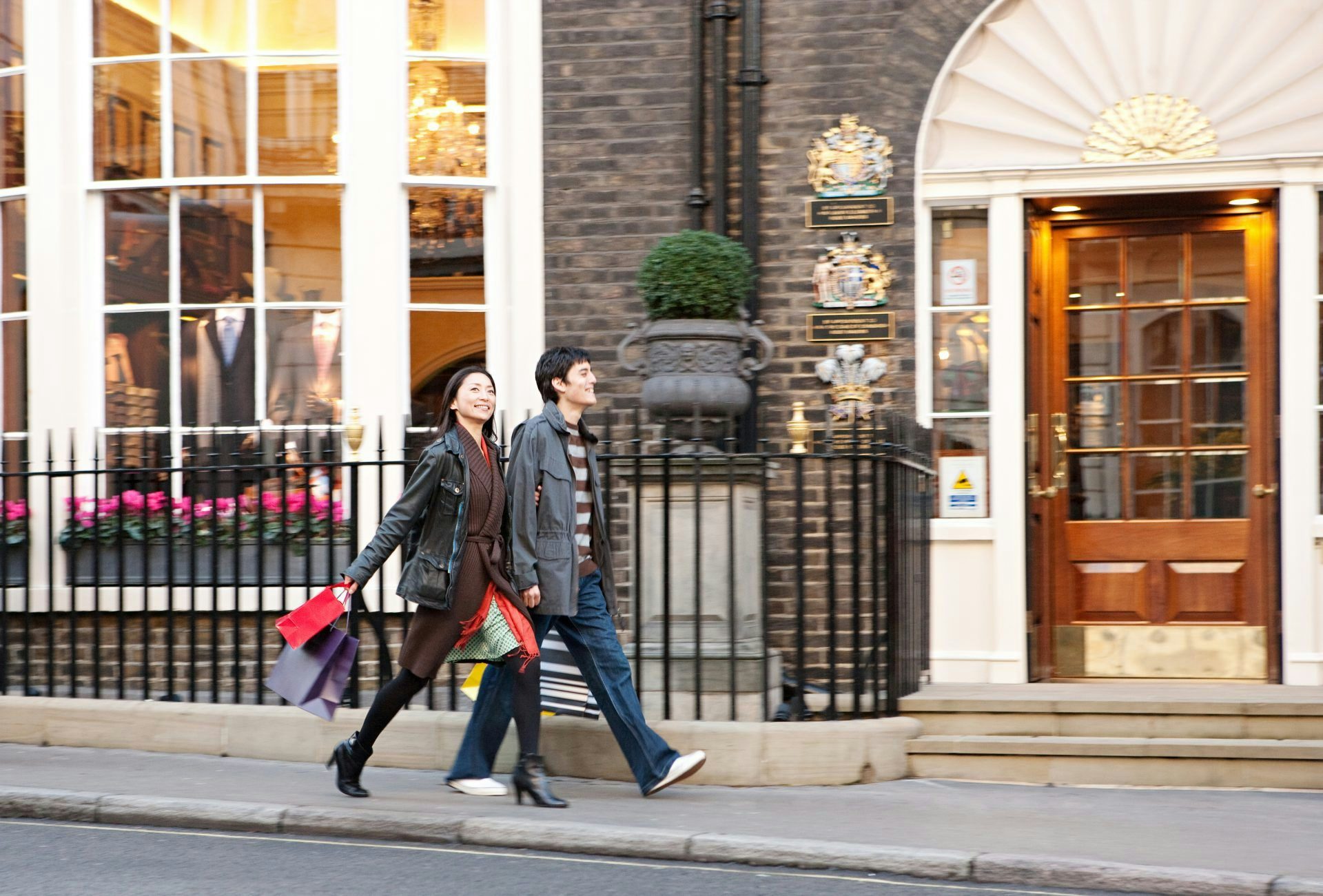Chinese consumers are among the top spenders in London’s iconic West End, home to leading luxury brands such as Versace, Prada, Gucci, Tiffany & Co., and Cartier. This remains true despite concerns that both Britain’s exit from the European Union, and China’s rising luxury e-commerce platforms could diminish London’s appeal as a shopping destination.
According to a recent report by Premier Tax Free, 60 percent of all Chinese tourists visiting London still make the West End their first stop.
Despite the uncertainties over Brexit, a pilot study commissioned by the New West End Company and PWC saw 27 percent growth in Chinese visitors in 2017. Over the recent 2018 Lunar New Year holiday, from February 14 to March 2, Chinese shoppers were expected to spend nearly 58 million dollars in the West End’s shopping area, compared with 50 million dollars over the same period in 2017, year-on-year growth of 14 percent. Many British stores remain optimistic that if Britain leaves the European Single Market, Brexit could result in an increase of visitors from outside of Europe looking for a tax-free shopping solution.
While many luxury stores are looking to China’s e-commerce platforms, according to Secoo/Deloitte’s China Luxury Report, for Chinese 20-30 year olds, 64 percent still prefer to purchase luxury items at physical stores. These customers, however, may be garnering brand information and advice online, as McKinsey reports 70 percent of all luxury sales by Chinese consumers in 2017 were influenced in some way by a brand’s online presence, despite only eight percent of sales taking place exclusively online. These statistics suggest that where luxury purchases are concerned, seeing is still believing.
The West End is a desirable destination not only for Chinese consumers but also Chinese brands. This week, British department store House of Fraser announced it will begin stocking luxury Chinese brands as part of an effort by parent company Sanpower to support Beijing’s trillion-dollar international trade plan, and eradicate the negative image of “Made in China.”
The New West End Company partners with over 600 luxury retail, hotel, restaurant, and property owners across the area, delivering street management and visitor services. We spoke to their CEO, Jace Tyrrell, about why luxury experiences remain important to Chinese consumers, how Brexit could catapult London forward as a tax-free shopping haven, and bringing Chinese luxury brands to London.

How important is the Chinese consumer to luxury retail in Britain?#
China and the entire region is crucially important on two levels. Last year we had £8.2 billion in foreign investment from Hong Kong, with interest up 200 percent on the year before. There’s a great deal of Chinese confidence in luxury commercial real estate in Central London.
It’s important to remember that Chinese visitors were only first able to travel to the UK 10 years ago. In that time we’ve seen unprecedented growth in the number of Chinese customers turning to London for their luxury shopping. The demographic of the Chinese shopper has also widely changed over this brief time. We now commonly see one or two people visiting, rather than big groups or tours, and the many international students are a big market. They have influence over their friends and families and the ability to spend. Another factor is the emerging middle class in China, we’ve seen it grow, but it really is about to explode—all of these people are hungry for style and luxury.
How has Britain’s impending exit from the EU affected Chinese perceptions of it?#
London is seen as the gateway to the European market for many Chinese brands looking to enter it. We want these brands, and we want to encourage them to come here. From talking to Chinese investors internationally, they sort of see Brexit as just a period in time.
The West End and Mayfair still attracts 200 million customers a year, and that shows no signs of slowing down due to Brexit. In fact, for Chinese brands looking to enter the market, the West End is still as effective as ever, and if the UK leaves the EU’s Single Market, London could become a tax-free haven for luxury shoppers. This would be very attractive for Chinese customers, and wouldn’t inhibit investment at all. Quite the opposite.
This year we will also see the launch of Global Blue’s first shopper lounge in the UK, offering tax-free refunds right by Bond Street.
Who are London's affluent Chinese consumers and what are they looking for?#
We attract the one percent of the one percent, those who are looking for high-end jewellery, and luxury property investors. This is solid and will continue, but what we are seeing more of is growth in the mid-luxury ranks. We need to consider how we will support this.
Our Chinese customers, although not the largest in number, are still the number one spending profile with us. They have an appetite for interesting brands and unique products, with year-on-year growth in Chinese spending in the area, increasing from 26 percent in 2016 to 32 percent in 2017. Young Chinese shoppers have amazing spending power, and they’re just not so bothered about the super brands, the Gucci and the Prada. Of course they still get a lot of visitors, but its brands like Supreme who we’re seeing grow an incredible Chinese millennial base of real devoted fans. Bond Street and Mayfair have to respond to the millennial shopper.
How will the West End compete with growing luxury e-commerce platforms?#
Anecdotally, we see that despite the growth of online, Chinese shoppers are still devoted to Mayfair. It’s not just a shopping location but a main tourist attraction. To compete with online shopping options, we need to provide convenient payment solutions for the Chinese shopper, competitive rates and an exclusive preferential shopping experience.
Gone are the days consumers are happy with just traditional high-end fashion brands and how they operate. Chinese consumers are demanding more. They want independent brands, British brands, and the world’s best restaurants and places to stay right by the stores.
Are Chinese mobile payment systems Alipay and WeChat available in stores?#
At the moment, London’s luxury stores still have very little coverage of Alipay and WeChat, but our aim is within the next 18 months 50 percent of all the luxury stores in the area will be making mobile payment solutions. Lots of the top brands almost have WeChat Pay in place. We’re just waiting for the infrastructure to be fully developed.



